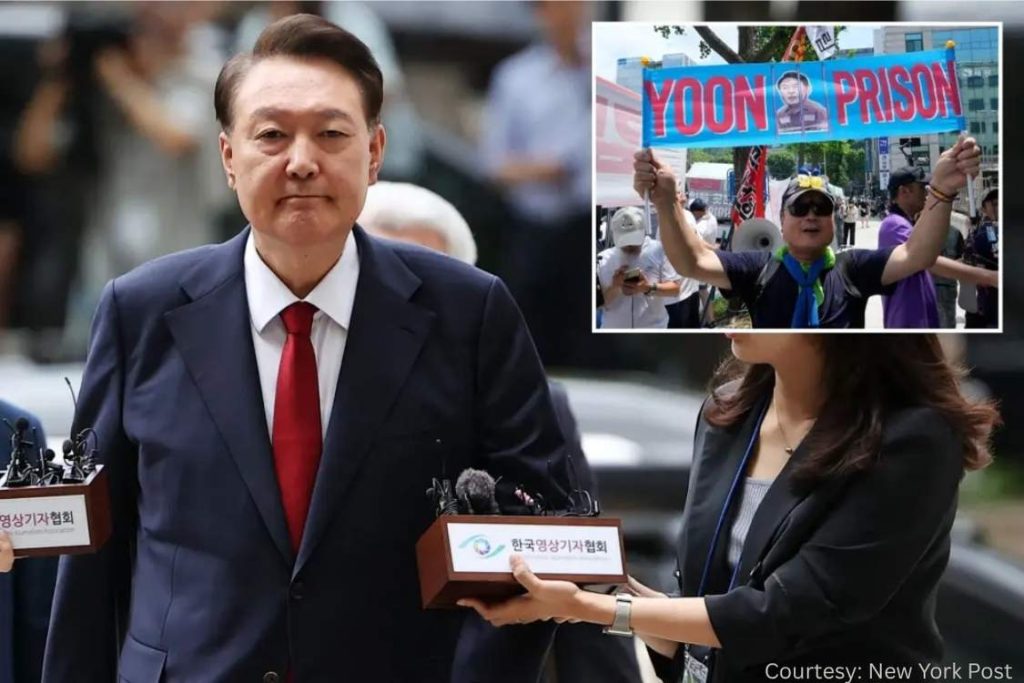SEOUL – South Korea’s former president Yoon Suk Yeol has been rearrested following the approval of a detention warrant by the Seoul Central District Court. The move comes as part of an ongoing investigation into his alleged attempt to impose martial law during the final weeks of his presidency.
Charges and Allegations
According to prosecutors, Yoon is accused of abuse of power, obstruction of justice, and attempting to interfere with his own arrest. Authorities allege that he deployed members of his presidential security detail earlier this year to prevent law enforcement from executing an arrest warrant.
The court approved the new warrant on grounds that Yoon may tamper with evidence or attempt to influence witnesses.
Court Appearance and Detention
Yoon appeared before the court on Wednesday, where his legal team argued against the warrant, labeling it politically motivated. However, the court rejected his request and ordered his transfer to the Seoul Detention Centre, located on the outskirts of the capital.
Background of the Case
Yoon, who was impeached and removed from office in April, is already facing insurrection charges linked to his failed attempt to declare martial law in December. The controversial move was overturned by the National Assembly, leading to widespread protests and a constitutional crisis.
Prosecutors have expanded their investigation to include additional charges tied to the alleged misuse of state power and efforts to obstruct arrest.
Public Reaction and Political Climate
Yoon’s rearrest has triggered fresh political tensions in the country. Supporters gathered outside the court to protest the decision, while security forces maintained a heavy presence to prevent unrest.
Political analysts warn that the latest development could deepen divisions in South Korea’s already polarized political landscape.
What’s Next
Yoon will remain in pre-trial detention as the prosecution continues its inquiry. The court is expected to decide on formal indictment and trial proceedings in the coming weeks. The case is being closely watched both domestically and internationally, as it marks a pivotal moment in South Korea’s democratic and legal history.
This story has been reported by PakTribune. All rights reserved.


